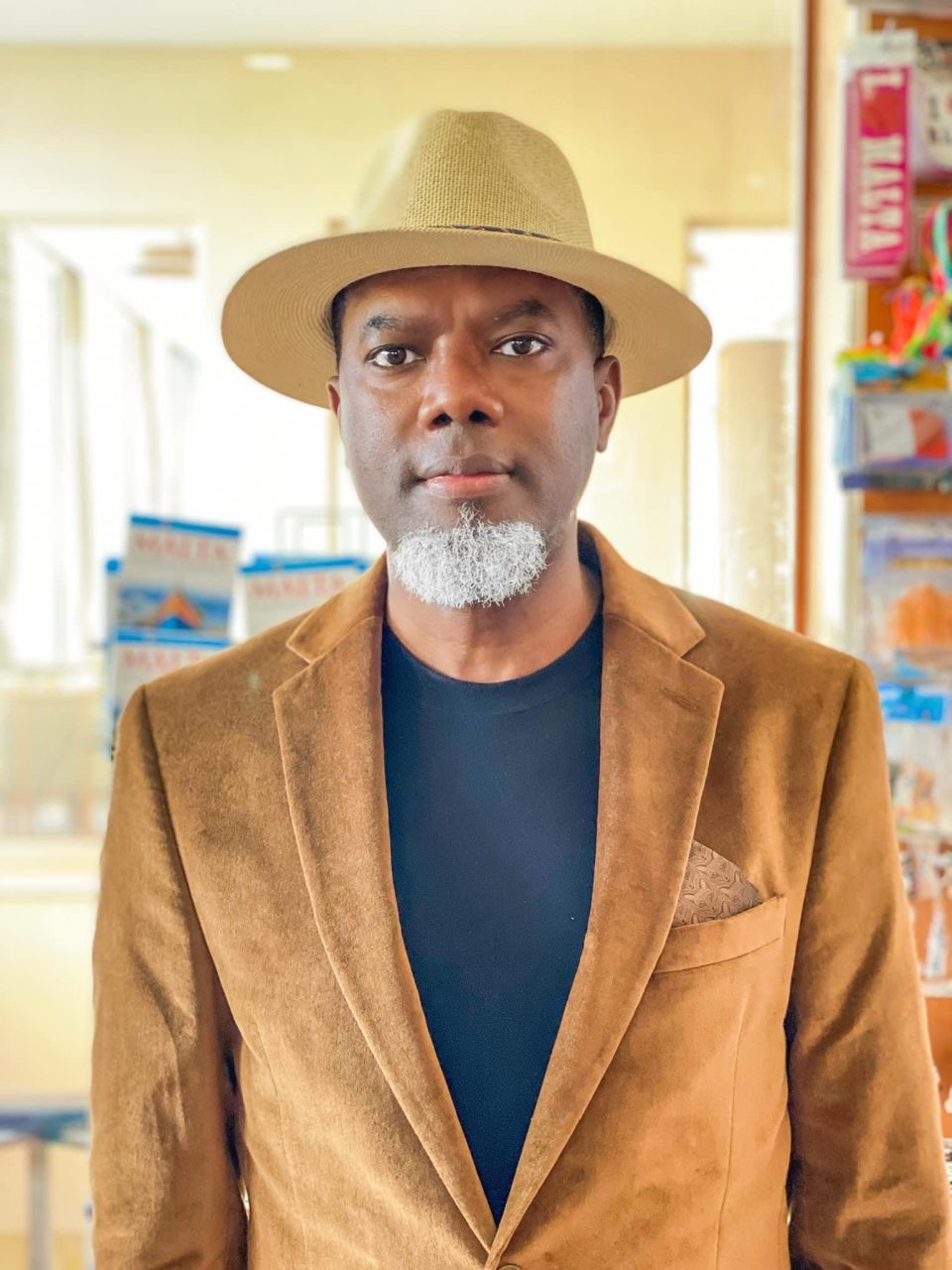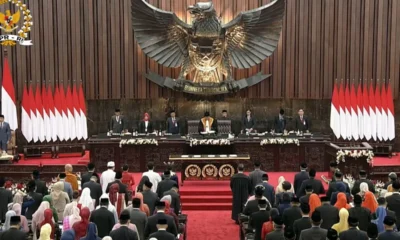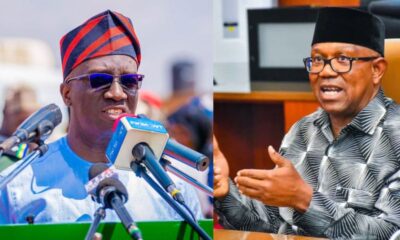Africa
Reno Omokri’s Hypocrisy: A Man Who Failed At Home, Yet Seeks To Lecture Nigerians About Leadership And Governance -By Isaac Asabor
Let us say it plainly: leadership is first proven in the home. A man who abandoned his son with special needs cannot lecture Nigerians on who is fit to lead. Reno must first resolve his own failures before presuming to point fingers at others. Until then, his endless lampooning of Peter Obi and others remains what it is, noise without moral weight.

In the noisy marketplace of Nigerian politics, where voices rise daily on radio, television, and social media, few are as relentless in throwing darts at perceived opponents as Reno Omokri. Once a presidential aide, now a self-acclaimed public intellectual and social commentator, Reno has carved out a reputation for his constant interventions, especially his tireless lampooning of opposition figures like Peter Obi. But the question that should trouble any right-thinking Nigerian is simple: “How can a man who has failed in the most sacred duty of fatherhood, particularly to a son with special needs, presume to have the moral authority to lecture others about leadership and governance?”
To put this in perspective, Nigerians were recently jolted when Reno’s ex-wife publicly accused him of abandoning their son, who lives with special needs. The story was reported by several Nigerian outlets. As gathered from Reno’s ex-wife in the reportage, he had not reached out to his son for months. In her words: “Since June 2024, Reno has not reached out, not even once, to check on his son. This is a child who needs extra attention, yet his father has completely walked away.”
She went further to stress the emotional and financial strain she has borne alone as she said: “It is heartbreaking that someone who has all the time in the world to attack politicians online cannot find the time to show up for his own son. If he cannot be a father to one child, how can he claim to understand leadership?”
These revelations cut deep because they expose Reno’s glaring hypocrisy. Parenting a child with special needs is not just a test of responsibility; it is a crucible of love, patience, and sacrifice. It is in such intimate spaces of family that a person’s true leadership qualities are tested. If Reno, with all his education, exposure, and resources, could not rise to that basic duty, what business does he have presenting himself as an arbiter of who is fit or unfit to govern a complex and diverse country like Nigeria?
The hypocrisy is glaring. He takes to Twitter, Instagram, Facebook, YouTube, and every possible platform to pour invectives on Obi, sometimes with puerile sarcasm, sometimes with selective statistics, painting himself as a guardian of truth. Yet, behind the façade, his personal record shows a man who shrank from responsibility where it mattered most. Should Nigerians, in their quest for credible leadership, take lectures from someone who failed to manage his own home?
The fact that the test of leadership begins at home, or better still, as it is commonly said, that charity begins at home, should not be forgotten in this context. Leadership is not abstract. It begins in the private spaces of our lives before it is projected onto the public stage. The family, in every society, is the first unit of governance. A father is a president in his home, a provider, protector, and role model. If Reno has demonstrated an inability to rise to this role, then his public posturing is nothing but an elaborate theater of hypocrisy.
No leader worth his salt should be taken seriously if his domestic life is in shambles by reason of neglect or abdication of responsibility. Nigerians remember the words of the late sage, Obafemi Awolowo, who said, “The seeds of greatness are sown first in the home.” How then can Reno, who failed to water the seeds in his own home, convince us that he has the moral compass to determine which politician is best suited to water the seeds of Nigeria’s destiny?
When Peter Obi’s name comes up, Reno rushes to construct a narrative of failure. Yet Obi has raised children who are not only well-adjusted but have kept themselves out of scandals, unlike the offspring of many politicians. Obi’s humility, prudence, and evidence of discipline in his family life stand in sharp contrast to Reno’s own deficiencies. The hypocrisy becomes undeniable.
Every other day, Reno Omokri finds a way to trend. He launches into long threads, spiced with figures that often collapse under scrutiny, all to discredit Obi. He seeks to brand himself as a “data-driven” commentator, yet his commentary reeks of bias, bitterness, and an almost pathological obsession. Nigerians can see through the act, it is not borne of patriotic zeal, but of personal interest and a craving for relevance.
It is one thing to critique leaders; it is another to hound them obsessively while carrying unresolved personal baggage. Reno’s behavior crosses into hypocrisy because he holds others to standards that he himself has failed to meet. If he believes leaders must show capacity and compassion, why did he not show the same compassion and capacity to his own child? If empathy is central to governance, why was it absent in his own home where it mattered most?
The truth is that Reno uses social media not as a platform of enlightenment but as a stage for projection. His ceaseless lampooning of Obi is less about Obi’s fitness for office and more about Reno’s hunger for attention. But attention without integrity is nothing more than noise, and Nigerians must stop mistaking noise for wisdom.
Hypocrisy, once tolerated, becomes a pattern. Reno’s brand of hypocrisy is especially dangerous because it normalizes double standards in public discourse. He calls Obi stingy, yet boasts about being frugal himself. He accuses Obi of falsifying statistics, yet twists data to suit his narratives. He derides others for lack of empathy, yet abandoned the one person whose life most demanded his empathy, his special-needs son.
This duplicity must be called out, because it erodes the moral fabric of public engagement. How can Nigerians aspire to hold their leaders accountable if public commentators, who should model integrity, operate with such shameless double standards? Reno’s hypocrisy is not just personal; it is emblematic of the rot that has poisoned public debate in Nigeria.
Ironically, Obi himself has never dignified Reno’s tirades with a personal reply. This silence speaks louder than Reno’s noise. Obi, unlike Reno, has demonstrated that true leadership is not in endless words but in quiet consistency. He governed Anambra with prudence, left billions in savings, and raised a family without scandal. He has shown that it is possible to be in politics without drowning in excesses.
If Nigerians were to judge between Obi and Reno not by words but by lived examples, the choice would be clear. One shows consistency between public posturing and private responsibility; the other thrives on contradiction.
The time has come to ask Reno Omokri hard questions. “How can you, Reno, who failed your own child, pretend to be the conscience of Nigeria?” “How can you demand accountability from Peter Obi when your own ledger is full of unpaid moral debts?” “How can you claim to understand leadership when you abdicated your most sacred leadership duty at home?” Until Reno answers these questions with sincerity, every word he utters against Obi, or any other politician for that matter, must be taken with a mountain of salt. Nigeria cannot afford to be misled by hypocrites who mistake verbosity for wisdom.
Without a doubt, Nigeria stands at a crossroads, yearning for credible leaders and honest commentators. The country does not need noisy hypocrites who fail at home but roar in public. Reno Omokri’s case is a textbook study of hypocrisy: a man, who could not be father to his own son, yet pretends to know who can father the nation. It is a contradiction that Nigerians must not ignore.
Let us say it plainly: leadership is first proven in the home. A man who abandoned his son with special needs cannot lecture Nigerians on who is fit to lead. Reno must first resolve his own failures before presuming to point fingers at others. Until then, his endless lampooning of Peter Obi and others remains what it is, noise without moral weight.
History will not remember those who shouted the loudest; it will remember those who lived with integrity, starting in their homes. That is why Obi’s quiet example will outlive Reno’s noisy hypocrisy.




























